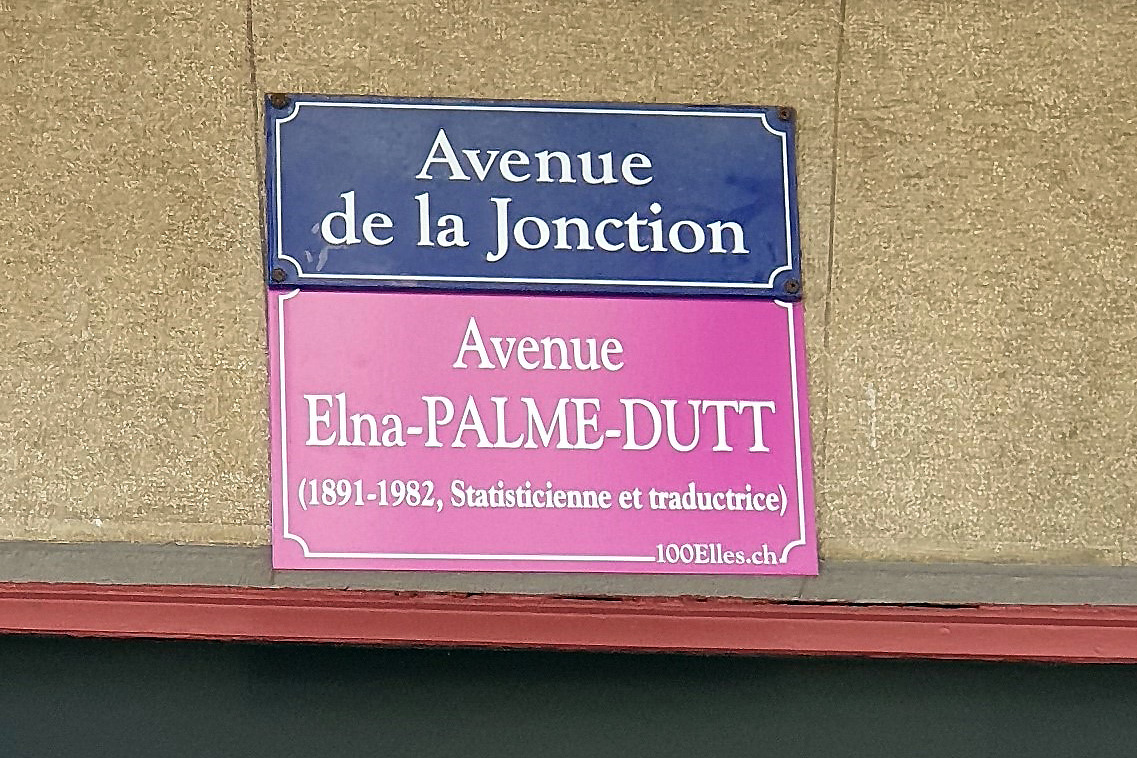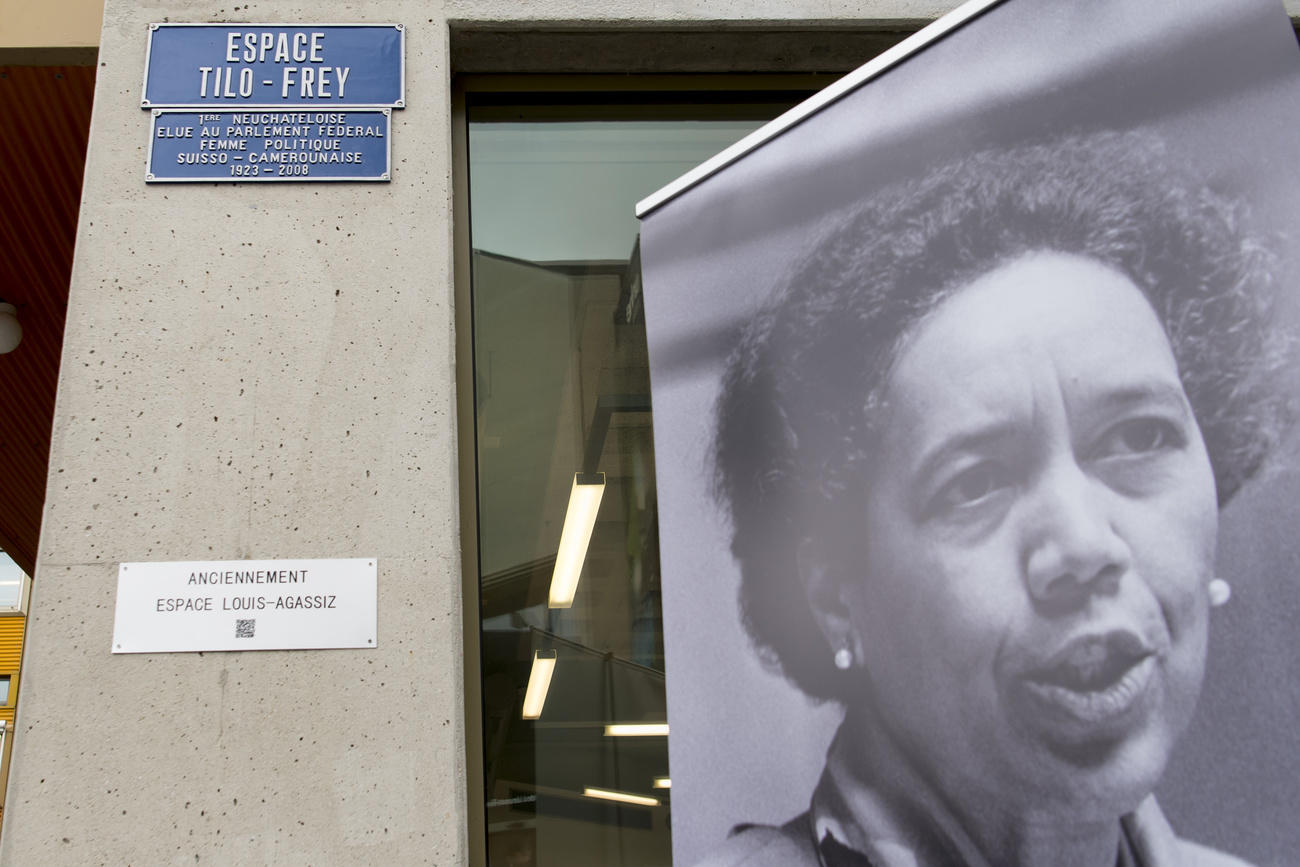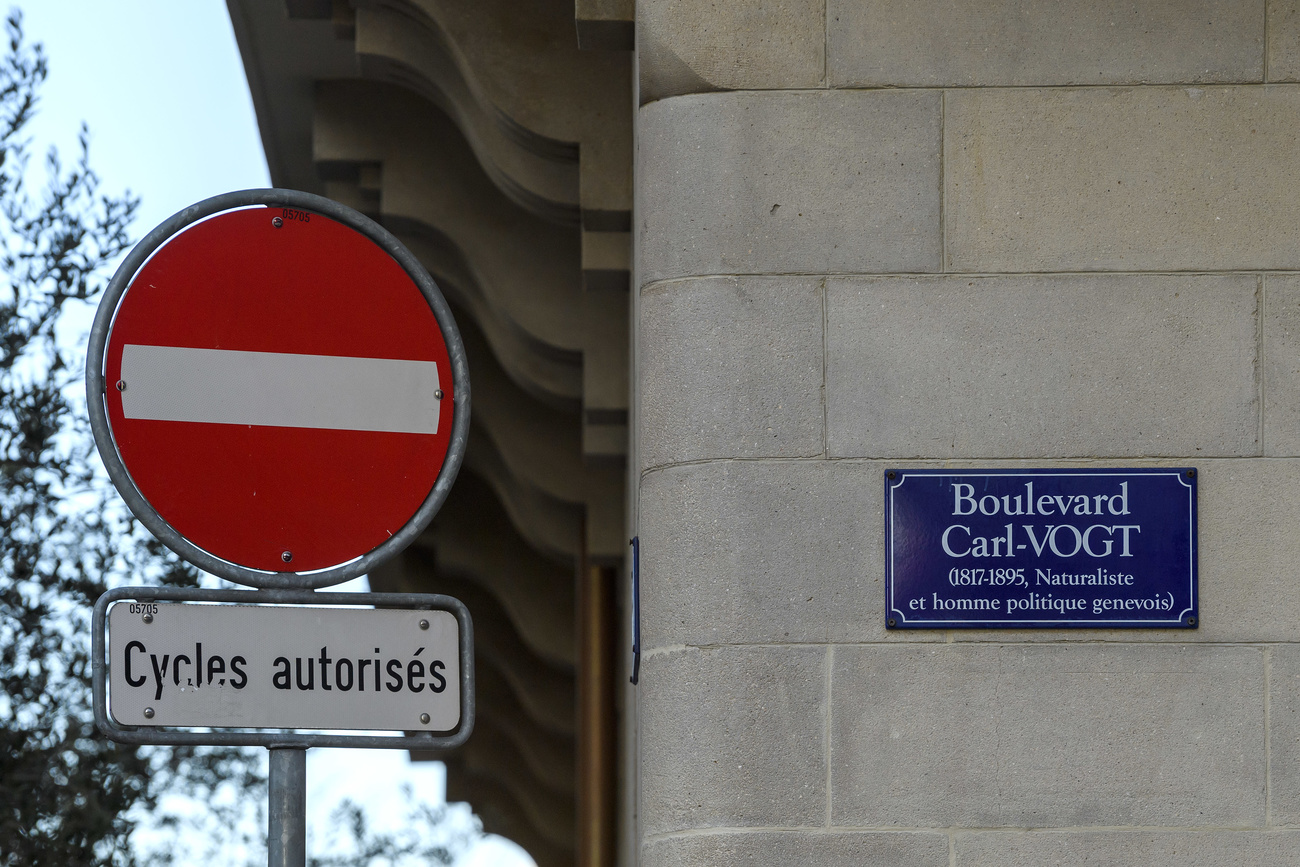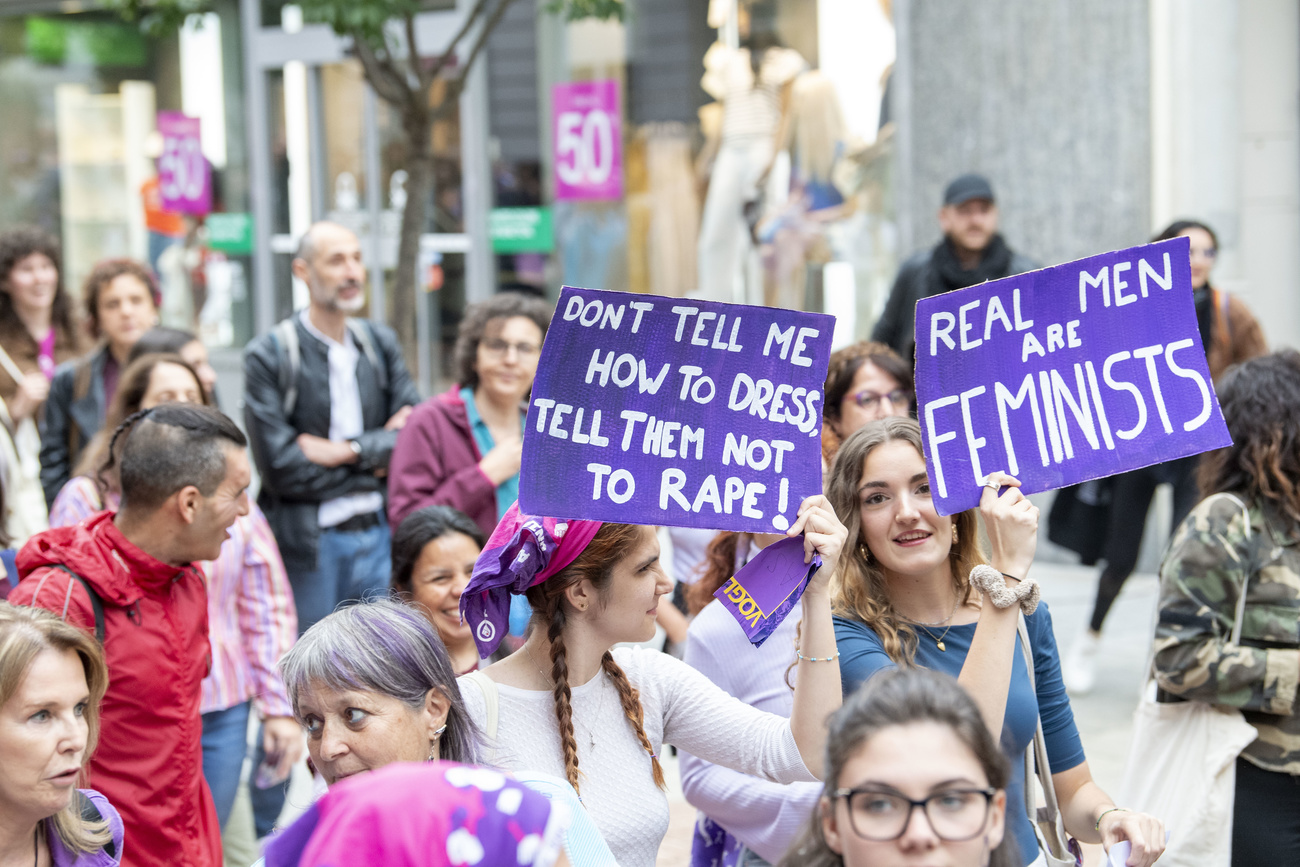The hard battle for women’s visibility in the streets of Geneva

Geneva is at a crossroads as city officials push to rename streets after women, sparking a fierce debate over tradition, inclusivity and the visibility of women in history.
For the past five years, the city of Geneva has prioritised feminising its street names. The effort was sparked by a worrying realisation: out of all the streets named after people in the city, a mere 7% were dedicated to women. Today, that figure has doubled to 15%, placing Geneva ahead of cities like Paris (8.6%) and Berlin (12.1%) but still trailing Stockholm (19.5%) or Madrid (18.7%).
But Geneva’s efforts do not only show in numbers. What makes the city’s strategy different is its focus on renaming streets in the historic centre. This is a bold departure from the common practice of dedicating women’s names to streets in peripheral or newly developed areas, without a prior address.
According to Frédéric Giraut, a geography professor at the University of Geneva, this approach sends a stronger message. “Not all streets are equal in terms of visibility,” he tells SWI swissinfo.ch in an interview. But this is also more controversial, as it implies the renaming of old streets and generates resistance from those attached to the history of the city and more administrative havoc than just naming a new street.
“This is why most cities avoid this strategy,” he adds.
For Laure Piguet, one of the historians involved in the project, it was the only way to really make a change. “We didn’t want to relegate women to alleys, dead ends, and remote neighbourhoods,” she says.
The project launched in 2019 started as a temporary initiative, to raise awareness of the gender gap in Geneva’s streets. In partnership with a feminist association, l’Escouade, the city added a hundred nameplates celebrating women next to the official street signs.
“This sparked a debate about the invisibility of women in the public space,” says Heloïse Roman, who headed the project for the city and remembers it as a success.
As a result, the local parliament decided to rename 100 streets after women across the canton, this time permanently. Of those, the city of Geneva aimed to rename 30 following the criteria set by the law. To be eligible for a street name, women must have been dead for at least ten years and to have contributed to the history or influence of the city.

Expanding the scope of history
Piguet and other historians tasked with proposing names decided to rethink this last criterion to include not only high-profile figures but also unsung contributors to Geneva’s history.
“In the past, streets have been named after the authors of military feats, scientific breakthroughs or artistic masterpieces,” says the historian. “But throughout history, it has been hard for women, especially those from lower social background, to participate in these celebrated activities.”
“To represent them, we had to widen the scope of what was considered important for the city,” she explains. “For example, we named a street after three washerwomen who died in 1913, in an accident of their wash-house boat. The death of these women led to the creation of more secure wash-house boats, and in this respect, it was key to the development of Geneva.”
The city also prioritised diversity, selecting figures like Annie Jiagee, a Ghanaian lawyer and activist, and journalist Marie-Claude Leburgue, an LGBTQ rights advocate.

More
Ten women who made International Geneva
Criticism and resistance
This inclusive strategy was met with backlash among certain historians, politicians and local associations. Critics like historian Isabelle Brunier argue that some new street names, particularly those with foreign origins, are difficult to pronounce, and questions whether figures with brief connections to the city merit recognition.
“They chose people who came from the United States or Africa, defenders of the lesbian cause, people who served perhaps six months in Geneva, in a certain United Nations commission and who nobody knows. Is that what we call contributing to the history of Geneva?” she asks.
Practical objections also arose. Residents voiced concerns about the logistical costs of changing addresses, business disruptions, and potential teasing linked to certain names. For example, Rue Sautter residents successfully opposed renaming their street after Henriette Saloz-Joudra, Geneva’s first female to open a medical practice, arguing partly that her surname resembled a French insult.
Beyond logistical challenges, historical preservation advocates lament the loss of street names tied to Geneva’s past. “Rue de la Scie (Street of the Saw) is a reminder of the historical sawmills of Eaux-Vives’ (a neighborhood in central Geneva),” says Brunier. The street, which was going to be renamed rue Annie Jiaggee, ended up keeping its original name.
The role of sexism
Underlying many objections is resistance to the idea that women should be represented in the public space. Cathy Jaquier, an elected city council official from the right-wing Swiss People’s Party, has been a vocal opponent of the feminisation of streets.
“We’re erasing the past because we want to put women forward at the expense of men who could have been more suited,” she says, noting that she considers herself a feminist but still finds that the initiative is dogmatic and doesn’t serve women.
Brunier also insists she is a feminist but thinks street names are unimportant. “Little girls don’t follow in the footsteps of women they see on street signs,” she argues, adding that the ones she knows are more interested in princesses from fairy tales. Piguet, who worked on the original project is convinced of the contrary. “When girls see women’s names in the streets, it shows them what they can achieve,” she says.

More
Should urban planning be politically correct?
When she initially got involved, Piguet had no idea the initiative would be met with such hostility. “I thought it was a mainstream project,” she recalls.
Piguet and her fellow historians from the city’s working group have often wondered what role sexism played in the backlash they faced. “We have been called ‘unreasonable’ and our skills have been questioned. Would that have happened if we had been men?” she wonders.
A step forward, but a long journey ahead
Despite the controversy, the group celebrated its final milestone in December 2024. The city renamed a square after Grisélidis Réal, a sex worker and author, overcoming resistance from two separate neighbourhoods. As the project ends, the city’s focus will probably shift to naming new streets after women rather than renaming old ones, according to Roman, who spearheaded the initial project.
Despite its efforts, Geneva remains far from achieving gender parity on its streets. A European Data Journalism Network report warns that at the current pace at which cities develop, even if all new streets were named after women from now on, it would take centuries to achieve parity.
Edited by Virginie Mangin, picture editor Helen James/ds

More
Geneva decides not to remove controversial memorials

More
Newsletters

In compliance with the JTI standards
More: SWI swissinfo.ch certified by the Journalism Trust Initiative











You can find an overview of ongoing debates with our journalists here . Please join us!
If you want to start a conversation about a topic raised in this article or want to report factual errors, email us at english@swissinfo.ch.